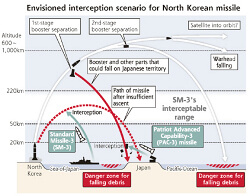This Yomiuri story on Toshikazu Sugaya, who was convicted of the 1990 murder of a child but released last week after new DNA tests pointed to his innocence, exemplifies one of the common complaints about the sky-high rate of convictions among cases that go to court in Japan:
While saying investigators used heavy-handed interrogation techniques only on the day of his arrest, Sugaya spoke of how he went on to conjure up a story of his “crime.”
This further shadow over the investigation begs the question as to why Sugaya felt compelled to make a false confession.
…
At the station, the investigators and Sugaya became involved in a verbal duel of accusation and denial that continued until the evening.
He did not immediately admit the crime when investigators showed him evidence such as the results of a test that matched his DNA with that of body fluid found on an item of the girl’s clothing.
“It was night, I was desolate and began to feel that if I didn’t do anything I wouldn’t be able to go home,” he said.
After about 13 hours of interrogation, Sugaya finally broke down at about 9 p.m., saying he “gripped both of the detective’s hands tightly and broke down into tears.”
“The detective seemed to think I’d done it because I cried,” he said. “But in fact, I cried because I was upset that he wouldn’t listen no matter how many times I told him I didn’t do it. I’d gotten desperate.”
Sugaya later confessed. He also said he imagined the story based on details the media had covered of the case.
“Since I was young, I’d clam up when people said things to me,” Sugaya said of his personality. “I hate offending people.”
His lawyer, Hiroshi Sato, said of Sugaya, “He has a tendency to be accommodating and felt he wanted to convince investigators [of what he did].”
Sato pointed out similarities between Sugaya’s case and that of a man in Himi, Toyama Prefecture, who had been arrested and imprisoned for rape and attempted rape. This man was found innocent in 2007.
If the Japanese police pick you up and decide they want a confession out of you, they have a well-stocked arsenal to help them ensure they get it (that link via Debito). Notice this sentence: “Yasuda claimed they told him it is cowardly to invoke the right to remain silent and said he should take responsibility as a lawyer.” The Yomiuri article mentions personality, and it’s probable that Sugaya is unusually self-effacing; nevertheless, the tendency in Japan when there’s a disturbance is for everyone at hand to make reflexive apologies. Interrogators, say those who’ve studied detention practices in Japan, play on that. If you don’t apologize and then sign a confession, you’re holding up justice, you’re wasting the police’s time, and you’re disrupting the smooth flow of things. Even if you weren’t the exact person who caused the disturbance, as long as you’re involved in it, it’s considered proper to step up and say you’re sorry. Those concerns are especially powerful to Japanese people. Of course, there are wrongful convictions in the U.S., too, often over the protests of suspects who maintain their innocence all along. At the same time, our system is set up to presume innocence and to maximize the options of the defense. There’s a great deal of self-policing in Japanese society, and often for lesser crimes charges aren’t pressed even if a suspect is picked up. But we were told, practically the moment we arrived in Yokohama for our language program thirteen years ago, that once you sign a confession, that’s it.
Another story from a few days ago illustrates a complementary problem: when things are not expedited but rather gridlocked because too many entities are engaged in turf wars. This is from a
Nikkei editorial published Friday about ITS (intelligent transport systems), in which it is hoped Japan can take the technology and implementation lead:
ITS comprise things such as vehicle-vechicle communication that avoids collisions between vehicles, road-vehicle communication that transmits road information, and navigation using high-speed roads. Auto navigation or or fee-collection systems (ETC) also fall within them. The metropolitan government and police department of Tokyo are moving forward with route guidance through traffic-signal controls and electronic signage, aimed at easing traffic jams.
The challenge is the form cooperation between the public sector and manufacturers takes. For ITS, it has a vertically divided structure, with the Ministry of Land, Infrastrucure, Transport and Tourism, the Ministry of Economy, Trade, and Industry, the Ministry of Internal Affairs and Communications, and the National Police Agency having, all four of them, jurisdiction; and there’s a powerful tendency for manufacturers also to be dead-set on their own unique technologies.
ITS Japan conducted a joint experiment of large-scale ITS in the Odaiba area, for which the Tokyo Olympic Center is planned. The technologies that each federal entity is moving forward with were unveiled, but to look at it from the perspective of people who drive, there was no uniformity to the systems and it was impossible to deny the impression of disjointedness.
The system that results is almost certain to be a snazzy one. When it comes to electronics, Japan does not fool around. But it’s also likely that consumers will pay, because each ministry, agency, and powerful corporation will find a way to get a piece of the governing power and the licensing and fee structure.
